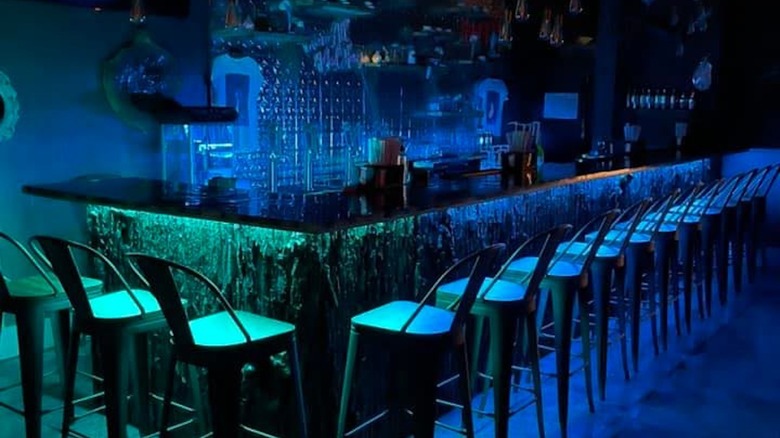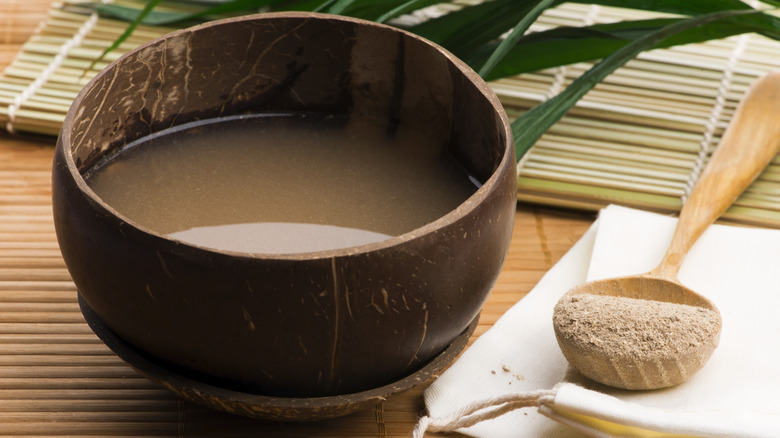Kava Bars Put A Non-Alcoholic Spin On Your Classic Cocktail Establishment
If you're in a big city and you want to go out, you have a few options: You can go for the classic night on the town drinking, enjoying beers, seltzers, and other spirits; you can go to an infused bar or restaurant to feel the mind-bending effects of marijuana or you can go to a Hookah lounge to puff up and chill out; or, you can stop by a kava bar and enjoy a peaceful, ambient setting with a calming drink. But unlike alcohol, marijuana, or tobacco, kava has recently come into the public eye and is a much lesser-known drug. So, what exactly is kava, and why is it so popular?
Kava is a plant from the Pacific Islands that is mixed into a liquid to create a tranquilizing, anxiety-reducing drink. The actual parts of the plant that contain the psychoactive properties are extracted from the Piper methysticum plant and are called kavalactones. Kava has been used by Indigenous cultures for thousands of years for ceremonial and community bonding purposes.
Today, kava bars are dotted around cities, blending in with pubs and bars. Unlike traditional alcoholic bars, though, kava bars are known for being quieter, as they promote community building and genuine conversation, and generally more ambient and "vibe-y." Additionally, many kava bars make it a priority to respect the culture they come from; for example, some bars use bowls that mimic coconuts, an important feature of Pacific Island traditions, while others use the phrase "Bula" when toasting the drink.
Advantages and disadvantages of kava
Many consume kava as a way to relax and create community — and kava is a great choice, as it doesn't come with immediate negative side effects such as a hangover or "greening out." In fact, some say the plant reduces tension, improves social skills, and even helps with sleep. The drink isn't known for its good taste; many say it tastes like a bitter, earthy drink, though most say the effects are worth it, even in mocktails. And although it's not a regulated drug in the United States like alcohol or marijuana, it's still recommended that patrons wait until they are 18 to consume it.
While it does offer many benefits, kava also has drawbacks. Although the drug is legal in the United States, it is not regulated by the Food and Drug Administration (FDA), and in many countries across the world, the drug is heavily monitored or banned. The lack of regulation by the FDA is especially worrisome, as consumers have no real way of confirming what strain of kava they are receiving (there are over 100) or how much kava they are taking. As well, although research is contested across the world, the plant has been linked to severe liver issues. Additionally, kava is not recommended to be mixed with certain medications, including depressants such as Alprazolam (Xanax) or barbiturates; as kava itself is a depressant, combining these drugs can create a dangerous, near-comatose state. If you want to try out these trendy bars, be sure to do your research first.

